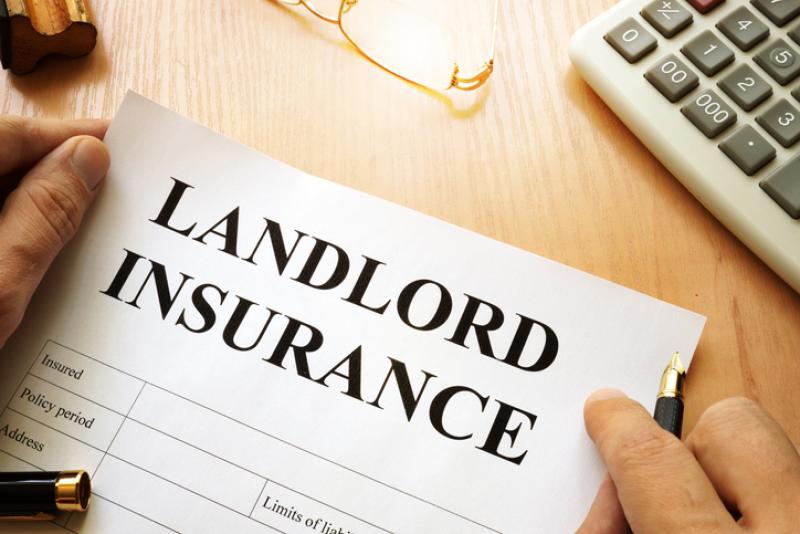
If you rent out a property or manage a portfolio of properties, it’s wise to take as many precautions as possible to protect the building, its contents and, of course, your rental income.
With the cost of buying a home now out of the reach of many, the number of tenants in the UK is on the rise. For landlords, this brings good opportunities but also a number of responsibilities - so what is rental contents cover, and do you have to put it in place?
What is landlord rental contents insurance?
Landlord contents insurance or rental cover protects any furniture, furnishings, white goods and outdoor items at the property you rent out to tenants. It can be bought as part of a package with buildings insurance or as a stand-alone policy, depending on your needs.
As a landlord, there is no legal obligation to have insurance in place, although many buy to let mortgages depend on the mortgage holder putting in place at least buildings cover, to protect the structure of the property.
Even if this isn’t a condition of your buy to let mortgage, it’s important to think about what might happen if you have no cover and something happens to your tenants or your property.
Sam Hurst of property listings agency Open Rent said: “It's certainly best practice for landlords to have contents insurance. Having a policy is a requirement under our Terms because we believe, as a letting agent, that our landlords benefit massively from having one. It's common sense to insure your valuable items, especially if they are going to be in the home of another person (the tenant).”
Buildings cover, contents insurance or a combination of the two can give landlords peace of mind that their investment will be secure should an accident occur at the property or a tenant cause any damage. With buy to let tax relief changes coming into effect in April 2020, many landlords are facing ever-squeezed margins, and rental contents cover can help safeguard against unforeseen problems.
It’s important to remember that standard home insurance won’t cover a rental property, which is why taking out specialist buy to let contents insurance is wise, in order to protect your investment.
What does landlord rental contents insurance cover?
Rental contents is invaluable for protecting any fixtures, fittings or furniture you supply as part of the tenancy agreement, especially white goods and appliances such as fridge freezers and washing machines.
Mr Hurst said: “Landlord contents insurance should cover the furnishings that belong to the landlord, plus any other contents owned by the landlord that aren't part of the structure of the building. Good details to look out for are contents in communal areas of HMOs and any outdoor equipment, such as lawnmowers.”
Admiral offers three types of landlord insurance, including rental contents cover, to suit your property. Our landlord contents insurance has three tiers, so you can choose the right level depending on the property and your tenancy agreement.
Our first-tier Admiral rental contents policy includes cover for possessions up to the value of £25,000, as well as alternative accommodation and loss of rent should your tenant have to move out for a while. It also includes the cost of replacing locks and keys, should these become lost or broken.
Our gold policy includes contents cover of up to £50,000, as well as contents removal and temporary storage, theft from garages and outbuildings and garden items and plants. The Admiral platinum policy covers contents up to the value of £75,000, as well as including higher levels of cover for theft from garages and outbuildings and garden contents.
Does my tenant need contents insurance?
You might agree with your tenant that you’ll provide the landlord buildings insurance, to safeguard against any damage to the bricks and mortar of the property, and advise they need tenants insurance to cover their belongings.
Landlords also often stipulate in the tenancy agreement that a tenant will take out accidental damage cover to protect, for example, carpets - particularly if there are children or pets living in the property.
Whether or not you take out your own contents insurance is entirely at your discretion, but do make sure you have a clear, signed tenancy agreement including landlord/tenant responsibilities, to protect yourself should a dispute later arise.
What other landlord insurance do I need?
As explained above, buildings insurance covers the fabric of the buy to let property. Admiral landlord buildings insurance also includes benefits such as emergency access, loss of metered water or oil and unoccupancy cover. And, if you choose our gold or platinum insurance, we will also cover you for unauthorised use of gas, electric and water.
Each of our landlord insurance tiers comes with landlord liability insurance included as standard. Also known as property owner’s liability, it protects you if you, a tenant or visitor is injured at the rental property as a result of an accident.
Mr Hurst said: “Do the basics. Consider the difference in cost between the premiums and your contents. Given the contents is likely to be best value when pegged to buildings insurance, the marginal cost of adding contents insurance is likely to be low.
“Remember, the peace of mind in knowing your items can be replaced is valuable. It’s especially valuable should you find yourself in a 'nightmare' situation with tenants you would like to evict and don't trust not to damage the property.”
What pitfalls should landlords look out for?
“It's boring, but you have to read through the policy very carefully,” said Mr Hurst. “Ask other landlords for tips and insights — the OpenRent Community is a great place to do this.
“Look out for policies which could be voided by who you let to, or the actions of your tenant; for example, if the tenant is subletting or allowing anyone, such as a partner, to live in the house who isn't on your tenancy agreement.
“You can add clauses to your agreement specifically not allowing subletting to try and prevent this. Always find out if there's an excess and how much it is!”
If you’re in the process of becoming a landlord, our checklist is useful. And our guide to landlord responsibilities can also help you avoid the common problems that tend to crop up.



